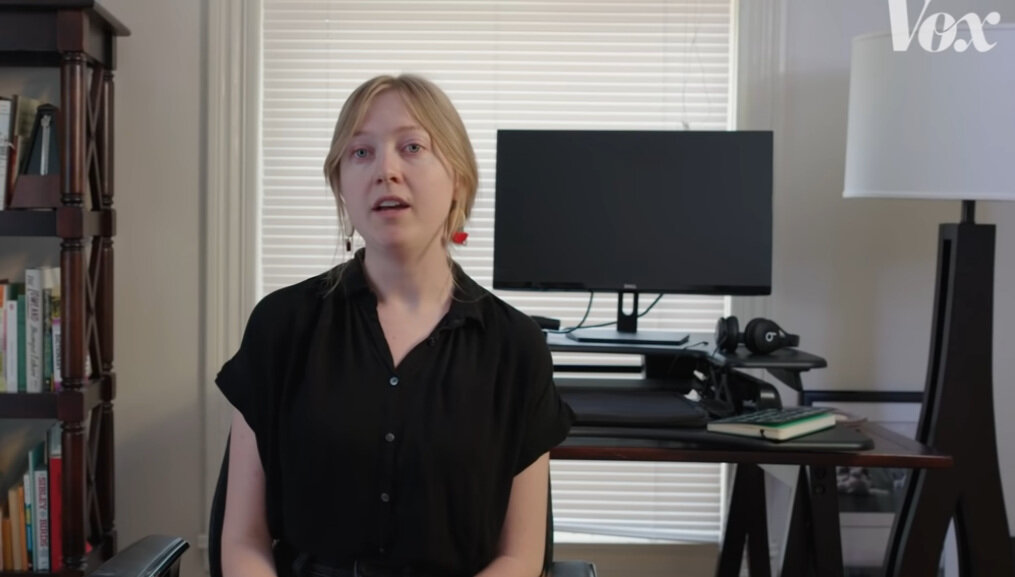Food program manager Claire Kelloway argues that the US needs a true opponent of corporate greed, rather than someone like Robert F. Kennedy Jr., whose stance is entangled with conspiracy theories.
Read MoreSenior Reporter & Researcher Claire Kelloway stars in a video segment about corporate consolidation of the meatpacking industry.
Read MoreWashington Monthly runs Claire Kelloway’s piece from Food & Power about how tech giants are trying to create a monopoly middleman on grocery deliveries.
Read MoreClaire Kelloway, food program director , and Jason Davidson, senior food and agriculture campaigner at Friends of the Earth, collaborate in this policy brief revealing the reality farmers face in the midst of carbon markets and the presence of Big Ag.
Read MoreOpen Markets Institute releases report on supply chain fragility— The report from researcher, Garphil Julien, focuses on security risks in critical sectors by the Bureau of Industry and Security to inform the U.S. – EU Trade and Technology Council Secure Supply Chains Working Group.
Read MoreOpen Markets conducts a report by Claire Kelloway and Matt Buck sponsored by the Yale Sustainable Food Program.
Read MoreSenior fellow Nikki Usher asked 18 public health officials in 29 nonurban Illinois counties about the platform’s pros and cons.
Read MoreSenior legal analyst Daniel Hanley specifies paths for effective litigation and suggests actions relevant authorities might take.
Read MoreLegal director Sandeep Vaheesan writes a paper describing how the FTC can use its expansive “unfair methods of competition” powers to strengthen fair competition under the Sherman Act.
Read MoreThis research paper is an update to Open Markets’ 2020 report, “Eyes Everywhere: Amazon's Surveillance Infrastructure and Revitalizing Worker Power,” and details Amazon’s further attempts to amplify and widen employee monitoring into September 2021.
Read MoreCheck out our “Eyes Everywhere” two-part report series illustrating the dangers of Amazon’s worker surveillance, Amazon’s competitor and consumer surveillance, and the solutions available here→
Read MoreOpen Markets Institute releases a sequel report on Amazon’s surveillance—This time documenting the scale and scope of Amazon’s consumer and competitor surveillance operations, their adverse impacts, and how to make Amazon stop.
Read MoreThis report discusses how the USDA must improve regulation of agriculture markets to ensure fair competition and to counterbalance predatory corporate consolidation through statutes such as the Packers and Stockyards Act.
Read MoreBrian Callaci, an economist at Open Markets Institute, recently published “What Do Franchisees Do? Vertical Restraints as Workplace Fissuring and Labor Discipline Devices”.
Read MoreLongtime digital executive Tom Davidson writes in the Center for Journalism & Liberty, a media program within Open Markets Institute, about how dozens of news organizations survive on more than sheer determination to provide neighborhood news.
Read MoreOpen Markets Institute publishes a paper, “Scrambled Eggs and Paralyzed Policy: Breaking Up Consummated Mergers and Dominant Firms,” by the economists John Kwoka and Tommaso Valletti that looks at cases in which U.S. and European law enforcers required corporations to unwind completed mergers.
Read MoreOpen Markets Institute’s report, “Corporate Monopoly and the Decline of America’s Vaccine Industry,” lays out what the Biden administration should do to repair the U.S. vaccine system and defeat the next pandemic.
Read MoreThis report, “Beggars and Choosers: How Google and Facebook compromise media independence with their corporate donations,” considers the contradictory behavior of Google and Facebook toward journalism
Read MoreThis Open Markets Institute report, “Redeeming the Democratic Promise of Agricultural Cooperatives,” highlights the vulnerability that farmers, as well as the agriculture industry as a whole, have to ever-expanding monopolistic corporations.
Read MoreOpen Markets Institute’s report, “Eyes Everywhere: Amazon's Surveillance Infrastructure and Revitalizing Worker Power,” illustrates the dangers of Amazon’s pervasive worker surveillance and the solutions that can be employed to stop that surveillance.
Read MoreIn this report, “COVID-19 and the End of Laissez-Faire Globalization,” Open Markets Fellow Beth Baltzan asserts that production shortages caused by the COVID-19 pandemic can only be effectively solved by enacting policies such as enforceable labor standards and rules prohibiting anti-competitive behavior, thereby creating a marketplace that fosters fair competition.
Read MoreThis Open Markets Institute report analyzes the history of repair markets in the United States, the tactics that manufacturers use to restrict repair, the consequences of restricted repair markets, and the antitrust and legal tools available to crack open cornered repair markets.
Read MoreThis report, “The Role of Monopoly in America’s Prescription Drug Crisis,” exposes how big pharma drives up drug costs through patent monopolies, abuses of regulations, and corporate consolidation.
Read MoreThis report, published in 2019, investigates an often-overlooked factor behind high prices for medical services: the increasing corporate concentration of ownership, particularly among hospitals.
Read MoreThe Open Markets Institute submitted a report to Congress on July 15, 2019 on Facebook’s plans to launch Libra, a global digital currency. Open Markets’ report emphasizes Facebook’s dismal track record on data privacy makes its proposal to launch Libra a dangerous liability at home and abroad and proposes a suite of policy options for Congress to consider.
Read MoreThis report, “Food and Power: Addressing Monopolization in America’s Food System,” documents the degree of concentration found in different agriculture-related sectors of the economy and lays out solutions for policymakers.
Read MoreMonopoly power is all around us: as consumers, business owners, employees, entrepreneurs, and citizens. When we purchase everything from washing machines to groceries, website domains to medical supplies, and even when we select a coffin for a recently deceased loved one, we are constrained by the small set of actors who increasingly control America’s commerce.
Read More





























